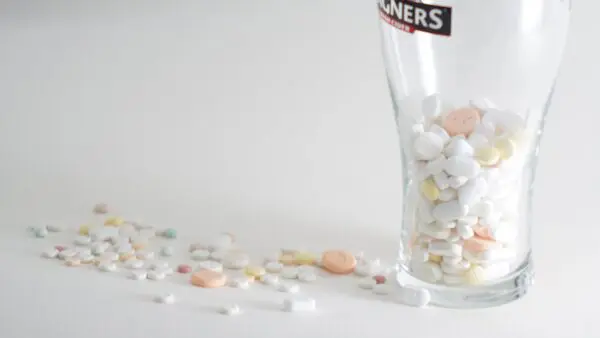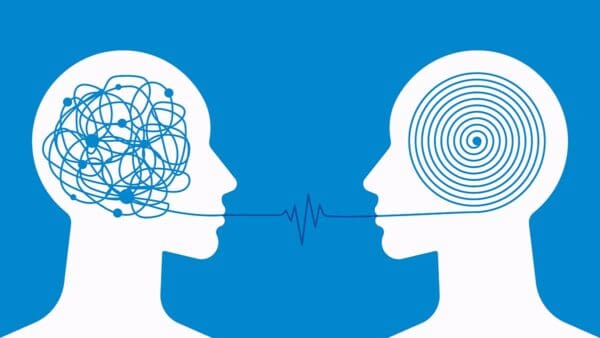Medical Editor: Dr. Benjamin Malcolm, PharmD, MPH, BCPP
Ibogaine and Heroin Withdrawal
Ibogaine is a unique psychedelic substance with actions across numerous neurotransmitters that is an alternative treatment option for heroin addiction. It has been shown to help with both cravings and withdrawal symptoms of opiates like heroin, which is truly remarkable.
What makes ibogaine so effective?
Research indicates ibogaine may reset opiate tolerance, alleviate depression or anxiety, and work through past memories of trauma. Reports from participants indicate it may help them get in touch with their inner self. Some reports suggest the experience may release people who use drug from the shame and guilt they carry while allowing them to work through challenging memories and life events.
Though not without risks including death, primarily due to its potentially toxic effect on the cardiac system, it may be worth looking into for the many people who feel trapped on opiates such as heroin.
What is heroin addiction?
Heroin (diacetylmorphine) is an opiate drug initially synthesized in 1874 by C. R. Alder Wright, a chemist in England. The name comes from the German word “heroisch” which means powerful or strong. Opioids like heroin are drugs that stimulate receptors in the brain called mu-opioid receptors, which contribute to regulating how we feel pain and emotions like pleasure. Heroin is made from morphine, which is derived from the poppy plant. It produces sedative effects in the central nervous system, blocks emotional and physical pain, and has cough suppressant and antidiarrheal effects.
Heroin is an addictive drug that is commonly smoked, snorted, or injected. When a person takes heroin, it causes a release of dopamine into the part of their brain where those opioid receptors are located, initially producing feelings of intense euphoria and relaxation. Repeated heroin use can lead to addiction, tolerance, and physical or psychological (craving) dependence. Heroin withdrawal is when your body starts to react negatively after the heroin use has stopped.
Heroin withdrawal includes symptoms like dysphoria, depression, anxiety, insomnia, diarrhea, sweating, cold sweats, muscle aches, nausea, and vomiting. The withdrawal symptoms can be so severe that they can lead people to take more heroin as they seek to eliminate the pain and discomfort caused by detoxing from this drug.
Fentanyl and Heroin: Does Ibogaine Work the Same?
Fentanyl is a synthetic opioid with a higher potency than other opiates, it has a much stronger binding affinity than morphine and is 80-100 times more potent according to the DEA. Unfortunately, fentanyl has become increasingly common as an adulterant in illicit drugs, with most heroin supplies now laced with it. Fentanyl also turns up in other illicit drugs like ketamine, methamphetamine, and cocaine, and accidental overdoses with fentanyl were almost 12x higher in 2019 than they there were in 2013. While adulteration of drug supplies with fentanyl is worrying in and of itself, there are additional concerns that the use of fentanyl could complicate ibogaine use for OUD.
For example, some ibogaine providers have stressed the need for longer short-acting opiate (SAO) switchover times for fentanyl prior to ibogaine treatment (e.g. possibly up to 2 weeks). This means a period of using morphine or (non-adulterated) heroin prior to the use of ibogaine. Despite fentanyl’s short-acting effects after ingestion, it has been observed that a single flood dose may not clear all withdrawals from fentanyl and that fentanyl-dependent people may experience post-acute withdrawals. Persons interested in testing their drugs for fentanyl can find test strips available here.
Is Detoxing From Opiates With Ibogaine Safe?
Home detoxification of heroin with ibogaine is not safe and ibogaine detoxification should always be done under the care of professionals at an ibogaine treatment center . Opiate detoxes are particularly taxing, and fatalities, as well as adverse medical events, have occurred.
Ibogaine participants should be in good cardiac health and thoroughly screened by their ibogaine provider for other exclusion criteria. Anyone interested in ibogaine must be screened with an EKG, electrolyte panel, and full liver panel before committing to treatment. Treatment centers should have robust screening procedures, medical staff, and monitoring equipment, and access to emergency medical services for optimal safety.
Persons cannot be taking long-acting opioids including those like methadone or buprenorphine to safely ingest ibogaine. Use of short-acting opiates like heroin or morphine are preferred and possibly required for detoxification of opioids with ibogaine. This is because ibogaine has neuroadaptive properties, and while resetting heroin tolerance, ibogaine also potentiates opiates. For this reason, opiate users need to be in the beginning stages of withdrawal from short-acting opiates when they start their ibogaine treatment.
In the case of an individual who may not meet all inclusion criteria, for example, an intravenous heroin user that doesn’t have vein access for emergency fluids or an opioid-dependent individual, providers may need to speak to potential clients about the possibility of using a repeated and low structured dosing protocol rather than a flood dose.
For a lengthier discussion of risks and screening procedures check out the Beginners Guide to Ibogaine.
Opiate Detox With Ibogaine
Treatment of ibogaine for opiate detoxification typically begins at the first signs of withdrawal, about 8-12 hours after the last use of a short-acting opiate. A test dose may be administered in the days prior to treatment to gauge sensitivity to ibogaine, followed by a ‘flood dose’. A “flood dose” is an industry term for an amount of ibogaine large enough to saturate receptor sites and eradicate withdrawals while also inducing a psychedelic dream-like state. This effectively allows ibogaine to interrupt the withdrawals from heroin shortly after ingestion. The dose of ibogaine necessary to adequately alleviate opiate withdrawal and craving may be dependent on the severity of the opiate dependency. High habits of heroin or other opiates, may take more ibogaine to feel relief from withdrawal symptoms and cravings than someone else. Flood doses might be 8-12mg/kg of ibogaine, with higher doses thought to carry greater risks.
When ingested, ibogaine is metabolized by the liver and converted into a long-acting metabolite called noribogaine. Noribogaine interacts and shares activity with ibogaine across many areas of the brain, including opioid receptors, and may be responsible for many of ibogaine’s long-lasting benefits. Multiple studies on the longer-acting noribogaine suggest that noribogaine may be more active at opioid receptor sites than its parent compound and may also provide anti-anxiety effects. Noribogaine increases serotonin and binds to 5-HT receptors. It may also block drug cravings, reduce withdrawal symptoms from heroin treatment, and prevent relapse.
In multiple observational studies of humans, ibogaine was successful in eliminating opiate withdrawal symptoms. One study looked at the acute opioid detoxification in 33 individuals. Seventy-six percent of the patients had zero opiate withdrawals or cravings at 24 hours and 48 hours after their initial dose of ibogaine, and withdrawals were eliminated within three hours of ingestion. The remainder of the group was a mix of people who had minor withdrawal symptoms that were resolved by the second day, or no withdrawals but still had cravings, one person who was determined to be underdosed, and one person died of cardiopulmonary arrest 19 hours after ingestion.
People detoxing from short-acting opiates like heroin have self-reported complete relief of withdrawal symptoms within 1-3 hours and up to 12-24 hours after ibogaine administration. Tolerance is reduced, and individuals are returned to a novice, pre-addicted state. For some individuals, residual withdrawal symptoms or post-acute withdrawal symptoms (PAWS) may occur and booster doses of ibogaine may be used.
In one observational study that included a 12-month follow-up, even the patients who resumed opiate use claimed they had positive ibogaine experiences and received insight into their personal situation. Some depression symptoms were also alleviated.
It is important to note that the farther a person gets away from their ibogaine treatment, the more likely they are to return to opiates, although a significant percentage report using fewer drugs. Ibogaine alone often does not do the job. Studies that have followed up with participants 12 months after ibogaine treatment found lower total abstinence numbers, 30% in one case. Integration, psychotherapy, or addiction recovery aftercare should be employed in each person’s treatment for sustained success.
What’s the Conclusion?
For traditional opiates such as heroin, ibogaine treatment is unparalleled with its ability to eradicate withdrawals and provide a sense of well-being in the participant in such a short amount of time. The increase of fentanyl-tainted heroin on the streets has created new challenges for ibogaine treatment. The risks of ibogaine treatment are considerable. Fatalities have occurred, but the exact number is unknown due to the unregulated and clandestine nature of the industry.
However, from 1999-2019 over 130,000 Americans died from a heroin overdose. Over the last decade, heroin-related overdose deaths have gone up about five times. It may not be unreasonable to conclude that some amount of risk – the risk that can be lowered with pre-screening and medical oversight – may be worth the chance of a successful treatment for heroin dependency. Given the profound effects of ibogaine treatment of heroin withdrawal and craving and the current public health crisis related to opioid addiction, further study and employment of ibogaine to treat addiction is an emergency.







